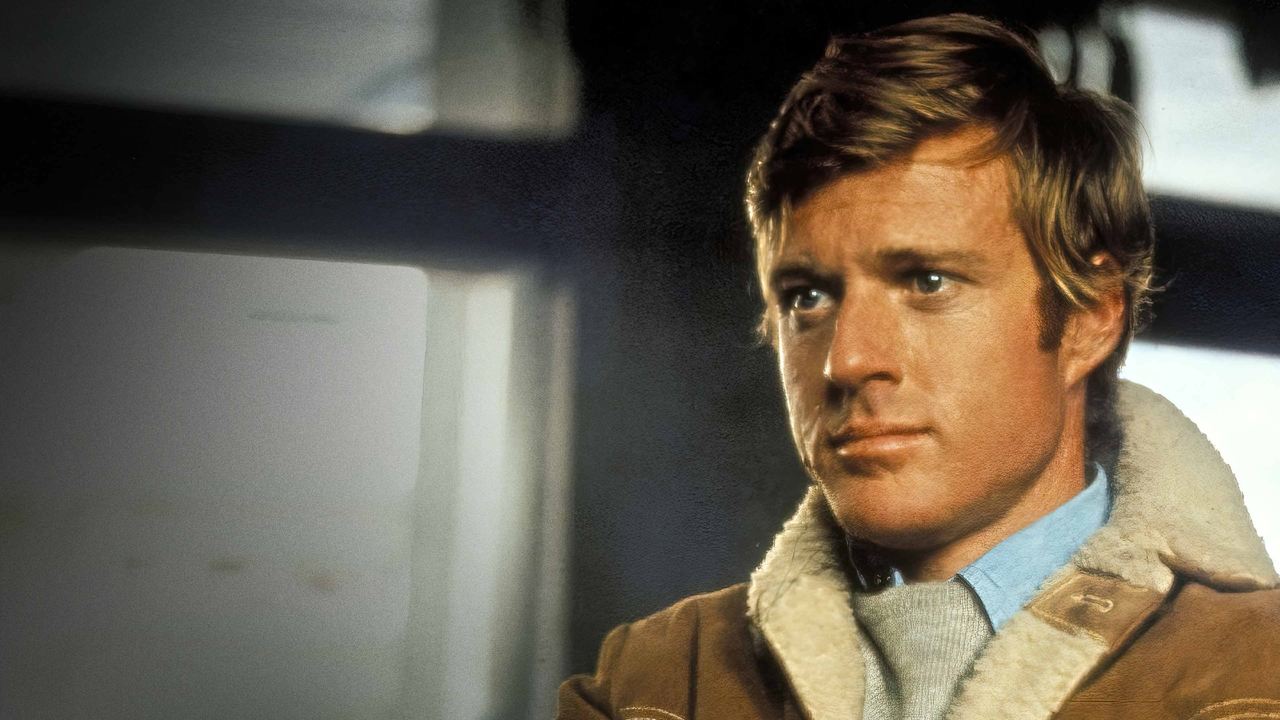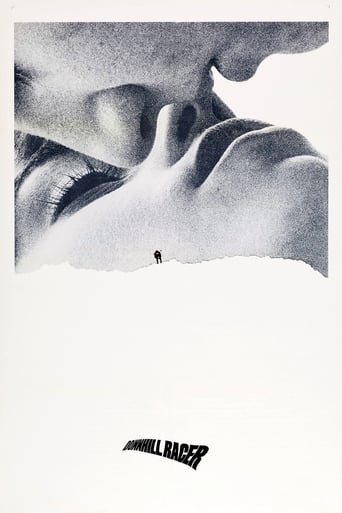2freensel
I saw this movie before reading any reviews, and I thought it was very funny. I was very surprised to see the overwhelmingly negative reviews this film received from critics.
Senteur
As somebody who had not heard any of this before, it became a curious phenomenon to sit and watch a film and slowly have the realities begin to click into place.
Lucia Ayala
It's simply great fun, a winsome film and an occasionally over-the-top luxury fantasy that never flags.
Kayden
This is a dark and sometimes deeply uncomfortable drama
HotToastyRag
Even if you love Robert Redford and you love skiing movies, I can't recommend you sit through Downhill Racer. My preference lies with the former category, and since he won a BAFTA Award for his performance, I was looking forward to seeing some high-quality acting. There was no redeeming quality about this movie, and for the life of me, I don't know why he was honored for it.Robert Redford plays a skier with hopes to join the American Olympic team. He's arrogant, rude, and a total cad with the women in his life. Gene Hackman plays the team's coach, and while it's fun to see him and Dabney Coleman so young, it's hardly worth seeing the film all the way through.The script feels nonexistent, the acting feels ad-libbed, the plot is thin, and there's more boredom evoked than suspense. Michael Ritchie's directing style feels extremely European, and I don't generally like that artsy, noncommittal, aloof style of film. Besides Havana, this just might be the worst Robert Redford movie ever made.DLM Warning: If you suffer from vertigo or dizzy spells, like my mom does, this movie is not your friend. Most of it is filmed with a hand-held camera, and the skiing scenes seem to be filmed by the skier himself, and they will make you sick. In other words, "Don't Look, Mom!"
james_lane-1
There were some curious choices made when this movie was put together. There seems no reason why the film couldn't have been much more successful if it had wanted to be. It has some fine actors, the skiing is great and the plot is basically the same as "Top Gun".Robert Redford is one of the most charming and charismatic leading men of the modern era, but here he plays an unlikeable loner. In fact, almost everyone in the film is more likable than Redford, and you really wish someone would beat some sense into him. So we don't really care that much if he wins or loses.The film isn't helped much by the jazz score, which would work for some noir detective flick, but hardly for the high adrenaline sport of downhill racing. Pity.
buorkey
For the record, the race involved is not the Super G, it's the Downhill. At the time of the movie, there was no Super G; the Alpine Skiing events were the slalom, giant slalom and the downhill. The Super G was added as a World Cup event in '82 or 83, and included in the Olympics for the first time in '88.The Super G is not as long or as fast as the Downhill. The skiers in the movie were the fastest of the fast.In the 1968 Olympics, Jean-Claude Killy of France won all three Alpine skiing disciplines, an amazing display or all around skiing prowess.The changes in equipment and technology since the movie was made are significant, but the courage and ego required to do this successfully are amazing. Although a different breed of cat, I've always likened Downhillers to Big Wave surfers. The natural forces involved are awesome, the consequences (for inattention) possibly fatal.The movie captured the quirky nature of the gunslinger type that is drawn to this sport.
malcolmi
Downhill Racer is about Olympic skiing, but it's also about American society, and about how sport gives the illusion of being an escape from the loneliness of being undereducated.Dave Chappellet (Robert Redford) grew up in the isolation of rural Colorado, where the career option after high school is working on a ranch or going to Denver to take a hairdressing course. His talent on skis has earned him a call to the US national ski team as a replacement after one of the members fractures his leg in a European race. When he arrives in Germany after what seems to have been his first airplane flight, he meets his new roommate, a Dartmouth graduate, one of several team members from that same Eastern undergraduate world.Chappellet remains cautious and defensive as he tries to navigate the manners, attitudes, and values of the team and of the European civilization he encounters. He's made even more prickly by the code of team play which he's required to accept from his demanding coach, Eugene Clair (Gene Hackman). Clair believes that good sportsmanship and team solidarity are the basis for success in international skiing, and that's important because success is what will achieve financial support for the team from American business. But Chappellet refuses to play the sportsmanship game - partly because he knows he can't speak the Ivy League language his teammates have mastered, and partly because he knows that winning is the only way he'll stay on the team, and Clair's concept of sportsmanship won't help him win, any more than would the attitude or values of Chappellet's embittered father back in Colorado. Dave Chappellet know he's going to have to ski his own race, always.Downhill Racer features a variety of exciting ski races filmed and edited with great skill, and they reveal very powerfully that, in the midst of all the thousands of spectators, each skier is alone on the mountain, and that winning comes from a combination of relentless focus and arbitrary fortune. With this truth presented so clearly and compellingly, Chappellet's refusal to play his coach's game is validated. On race day he has to ski faster than anyone else. No one else can help him. And neither will membership in the right club (or school, or social background). He has to do it on his own.But being on your own is very lonely. Chappellet begins to want to belong, and chases after a kind of club membership in Europe, pursuing the very attractively worldly Carole Stahl (Camilla Sparv), executive assistant to a German ski manufacturer. He catches her because he's becoming famous, and thus useful, but discovers that he's not important to her. He's a pleasant diversion, but he can be discarded as easily as a pair of gloves. He receives praise from his coach, but only after winning races. Until he wins, he's the target of Clair's angry lectures about not thinking of the good of the team. Hackman's strangled speech and look of frustrated disgust as he berates the uncooperative Redford for having taken an unacceptable risk after practice create a high-water mark in American film acting, as does the surly self-centredness of Redford's response.At the end of the movie, narrowly dodging defeat in the most important race in his career, Chappellet is hoisted on the crowd's shoulders in a frozen moment of apparent triumph. But only one value exists - winning. And his win is already history. There's no love in it, no acceptance more profound than his coach's praise, the crowd's shouts of excitement. And tomorrow's winner is already eyeing him in an unspoken challenge. Dave Chappellet is going to be skiing down this mountain alone for the rest of his life.Looking back across nearly forty years to watch this excellent film, we can already begin to hear the question asked by Robert Redford's character in The Candidate, "What happens next?" The answer may be bleak - more competition, more loneliness - but the film helps us discover the answer in a fascinating way, because it puts us on those skis, rushing at impossible speed down the mountain, in a cocoon of our own heartbeats, our own laboured breathing. We're forced to ask ourselves, "Would we make the team? Would we win? And if we did, would it mean anything?"

